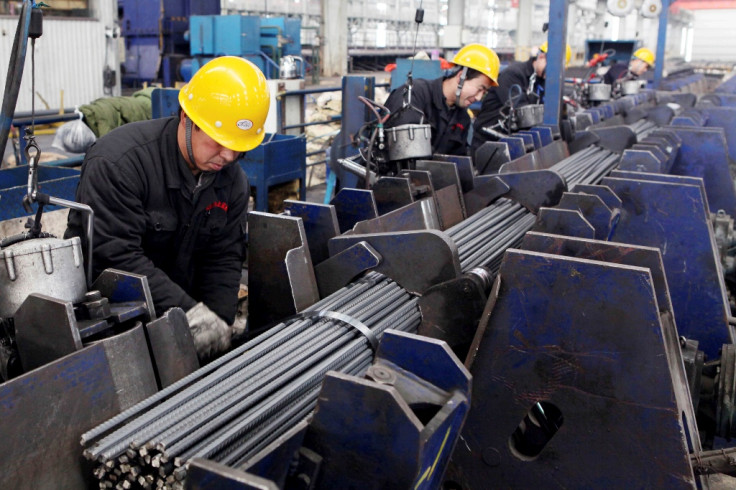Emerging Markets Output Growth Drops to Four Month Low in January

Business activity across emerging market economies expanded at the slowest pace in four months in January, after being pulled down by sluggish services sectors in the BRIC economies.
HSBC's composite Emerging Markets Index of manufacturing and services purchasing managers' surveys slid for a second straight month to 51.4 in January, from 51.6 in December 2013.
The January score was the lowest since September 2013, and stayed under the 2013 average of 51.7, and was well below a reading of 64.1 posted in January 2013.
However, the monthly index remained above the 50 mark that demarcates an expansion in activity.
Based on data from purchasing managers at about 8,000 firms in 17 countries, the survey pointed to a manufacturing and export recovery in some countries.
However, Chinese factory output dropped below the 50 threshold, Brazilian manufacturing growth slowed and output fell in Russia and Indonesia.
Growth was stronger in India, Poland, Taiwan and Mexico, the survey showed.
While inflationary pressures were subdued, weak currencies were increasing costs for some manufacturers, HSBC said. Turkish firms saw the sharpest rise in input prices in nearly three years, a result of the lira's fall to record lows.
Services activity in January, in the biggest emerging markets, dropped to a six-month low. India and Brazil posted declines, while growth rates in China and Russia were weak, HSBC said.
Future Output
The HSBC Emerging Markets Future Output Index, which tracks the business activity expectations of firms over next 12 months, picked up in January after dropping to a six-month low in December 2013.
Within that reading, manufacturing sentiment struck a ten-month high while that in the service sector fell to a record low.
Among the largest emerging markets, China posted the strongest sentiment in ten months (manufacturing and services combined), but a weaker outlook than the remaining BRIC nations.
Brazilian sentiment slowed to a nine-month low, while the future output indices for Russia and India picked up but remained historically weak.
Pablo Goldberg, HSBC's Global Head of Emerging Markets Research said in a statement: "Although both the aggregate Manufacturing and Services EMI deteriorated in January, they remain in expansion territory. Interestingly the future activity index shows a pick-up for manufacturing and a drop for services, suggesting expectations of an export-led recovery.
"Manufacturing PMIs are still showing economic resilience, although not without increasing divergence between countries. Among the winners, we have countries in a clear cyclical recovery that are being lifted by the improvement in the developed markets: Mexico, Poland and the Czech Republic. By contrast, PMIs decelerated in Turkey, Brazil, Russia and Indonesia. These are among the countries where deteriorating external balances have prevented monetary easing or forced tightening.
"Two positive indicators suggest there are reasons to stay moderately upbeat on the resilience of EM economic activity. First, new export orders have improved for many countries and, second, the forward-looking new orders-inventory mix continues to improve.
"On the negative side, the China manufacturing PMI has fallen below 50, which is bad news for many emerging markets. Moreover, a combination of activity and price PMIs suggests the room for further monetary easing has closed," Goldberg said.
"Lastly, the employment PMI shows deterioration across the board, which could eventually hurt domestic consumption," Goldberg added.
Barclays Capital said in a 7 February note to clients: "EM central banks set to stay on hold next week. We expect Korea, Indonesia and Russia to stay on hold next week.
"That said, we expect Indonesia, South Africa and Brazil to deliver further rate hikes this quarter and we would not exclude some form of additional hikes in Turkey either.
"Indian inflation data next week should provide further hints whether the RBI has completed its hiking cycle.
"Next week, we also expect China's PBoC to resume its repo operations, as maturing reverse repos will withdraw liquidity from the banking system. We think the PBoC will aim for keeping the interbank rates stable; however, markets are likely to follow the PBoC closely for any hints of 'fine tuning' in its policy stance," Barclays added.
Several emerging central banks such as Turkey, India, South Africa and Brazil have tightened monetary policy in recent weeks and many more are expected to follow.
© Copyright IBTimes 2024. All rights reserved.






